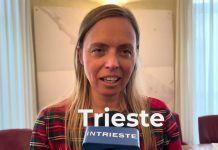by InTrieste
As the ceasefire between Israel and Iran holds following what U.S. President Donald Trump has dubbed the “12-Day War,” the international community is left grappling with the aftermath of a brief but highly volatile conflict. The war, triggered by Israeli airstrikes on Iranian nuclear sites and followed by retaliatory missile attacks on U.S. military installations in Qatar, raised fears of a much broader regional war—fears that, for now, have been averted.
Speaking with InTrieste, Federico Donelli, Professor of International Relations at the University of Trieste, offered a measured but sobering analysis of the situation’s geopolitical and economic implications.
“This may have been a short war, but its effects will be long-lasting,” Donelli said. “It demonstrated the volatility of the region and the speed with which a localized conflict can escalate into a broader geopolitical crisis. What’s worrying is how quickly the U.S. was pulled into direct military action. That shows how fragile the regional balance has become.”
Donelli emphasized that, while the ceasefire appears to be holding, its foundations are shaky. “All parties—Trump, Netanyahu, and Iran’s leadership—are claiming victory, but none of them achieved a definitive strategic gain. Iran’s nuclear infrastructure suffered heavy damage, but it’s unlikely the program will be abandoned. And Israel, while demonstrating military might, is now more isolated diplomatically than before.”
The economic consequences, he stressed, should not be underestimated. “In Europe, especially in countries like Italy, Greece, and Spain, the ripple effects of this conflict are already being felt. The temporary spike in oil and gas prices will have consequences for inflation and cost of living,” Donelli said. “These countries were already struggling with internal economic pressures, and this conflict has only added to their burdens.”
Donelli also pointed to the European Union’s lack of cohesion during the crisis. “We saw once again how divided the EU is when it comes to foreign policy. Some member states aligned closely with Washington and Tel Aviv, others pushed for neutrality or mediation. This fragmentation weakens Europe’s voice on the global stage.”
Asked whether the current ceasefire could serve as a basis for future diplomacy, Donelli was cautiously skeptical. “It depends on whether the U.S. remains actively engaged in de-escalation efforts. If Washington pulls back too quickly, there’s a real risk that tensions will flare up again,” he said.
In the meantime, the professor warned, countries across Europe need to prepare for prolonged uncertainty. “We’re not just talking about military instability in the Middle East,” Donelli concluded. “We’re talking about economic insecurity, energy vulnerability, and political fragmentation—all of which are now very much part of the European reality.”






























